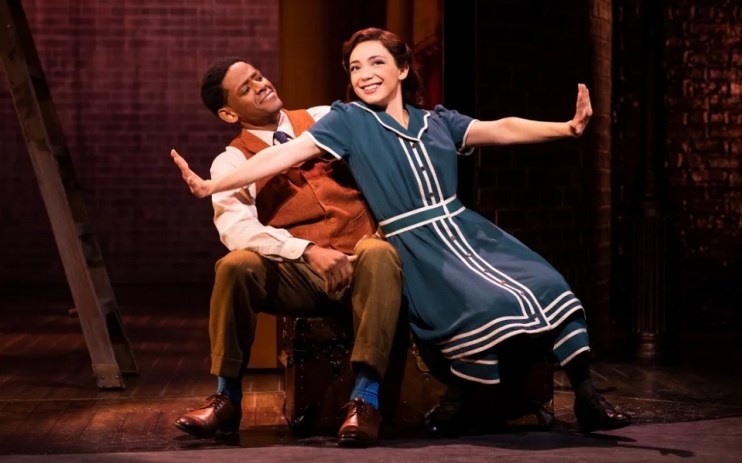Funny Girl shows how Broadway star casting is better than London

I’d booked to see new opening The Cottage on Broadway starring Eric McCormack, only there was a problem. “Mr. McCormack isn’t in the show Tuesdays,” the agent told me. Hmm. I also wanted to see Funny Girl and had chosen Thursday. “Yes sure, of course,” I was told. “But Lea Michele doesn’t perform Thursdays.”
I learned that in New York, unlike in the West End, it’s common for A-List star casting to contractually agree a day off per week when they’re in Broadway shows. It was just random chance that for both the shows I wanted to see I had chosen the night the main star was off.
I thought to go along with it. It was surely a sign of some sort, I thought, and also, wouldn’t it be more fun to see an up-and-coming actor? I hadn’t seen Glee in a decade anyway, and never even watched Will & Grace.
The culture of having a newcomer, or relative newcomer, filling in one night per week democratises theatre work, giving more opportunities for burgeoning talent to take on big roles in front of large audiences. It’s the type of opportunity that doesn’t exist in quite the same way in London
It turned out to be the best decision I made while in New York. The Cottage – contrary to most of the reviews – is a decent farce, and it was fascinating watching what an American interpretation of a British farce is.
But it was Funny Girl’s non-star-casting that blew me away. We saw Julie Benko play the lead role of Fanny Price instead of Lea Michele. She has played the role on Thursday evenings, just one show per week, and this ‘standby’ job has been a breakout role for her. In that time she has become a cult Broadway star, spotted by die-hard Broadway fans for her exceptional performances, for putting a stamp on famous song Don’t Rain on my Parade, and for engaging directly with her fans online – and for how much she obviously truly loves playing this role. The New York Times profiled her, saying “Julie Benko was the ‘Funny Girl’ you’d never heard of, until now.”
Throughout the run audiences had slowly begun getting obsessed with Benko; she had arguably become the star of the show. Speaking of her success she told the Today show: “I think people really love the meta-theatricality of it all: A star is born. Fanny Brice is this unknown, and then they come to the theater to support this person who’s been working her way up as an unknown for so much of her career.”
Another twist was to come: we were catching Benko on her last ever performance. Throughout both acts the crowds, who had come out specifically to see her in her final show, were giving ovations after most of her solos. Twice she broke down in tears, breaking the fourth wall as she acknowledged their love midway through songs.
At the curtain call, in tears, she said: “Next time you go to the theatre and you see that little white slip, I hope you’re excited to see someone new.”
On Broadway and in the West End it’s common to get a slip of paper explaining when a lead role is played by someone else. For the past year that slip has been inserted every Thursday to explain that Glee’s Lea Michele won’t be performing and that Benko is taking her place.
Benko performed with grit, confidence and with the sense that she absolutely wanted to be on that stage. Moreso, that her career quite literally is owed to this performance. I’m not saying all A-List stars are going to take these roles for granted because that’s not true. But there is simply less resting on a Broadway show for a rich, established actor who has performed for decades on TV and screen. For them it is just another job whereas for Benko and the next that comes after, these one-night-per-week roles can launch an entire career.
There is lots wrong with Broadway: the top shows price out fans with extortionately high ticket prices. But the culture of having a newcomer, or relative newcomer, filling in one night per week democratises theatre work, giving more opportunities for burgeoning talent to take on big roles in front of large audiences. It’s the type of opportunity that doesn’t exist in quite the same way in London.
I had gone in thinking the star taking a night off per week was short-changing the audience – and had left realising that you’re way better off seeing the ‘alternative’ Fanny. “Exactly!” one prominent theatre blogger said to me in a bar after the show, nodding in agreement. It’s the Broadway secret I’m happy to share.
